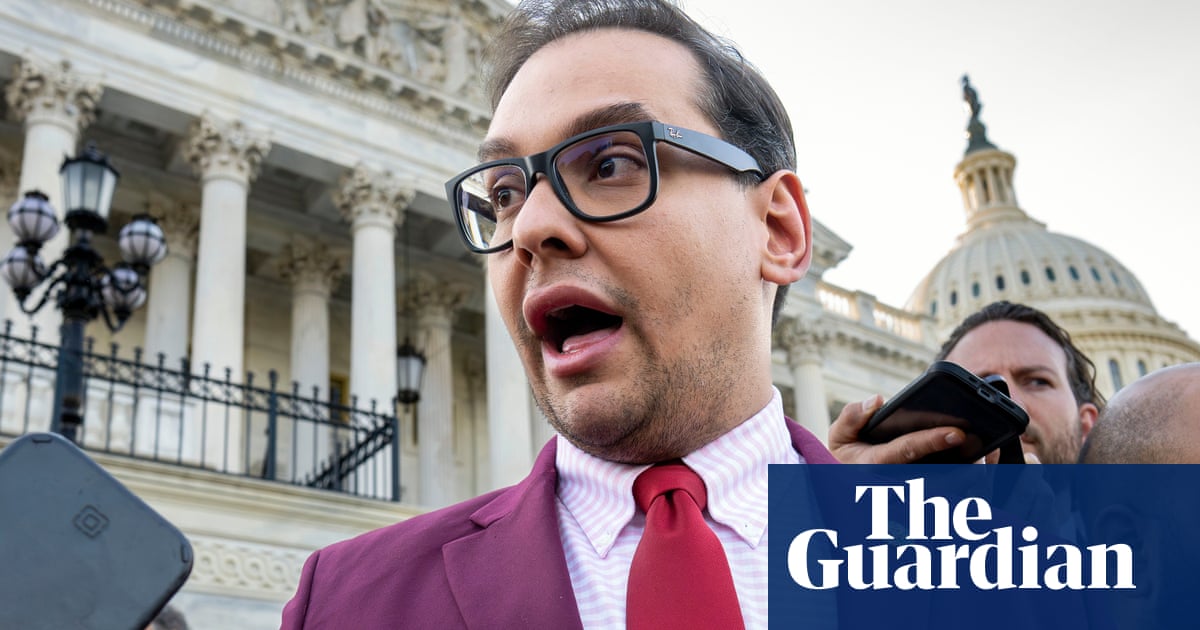
The New York Republican congressman, fabulist and criminal defendant George Santos said he would not seek re-election next year, after the House ethics committee issued a report detailing “grave and pervasive campaign finance violations and fraudulent activity” and recommending action against him.
“I will NOT be seeking re-election for a second term in 2024 as my family deserves better than to be under the gun from the press all the time,” Santos said in a statement, calling the report “biased” and “a disgusting politicised smear”.
The report detailed the New York congressman’s conduct.
“Representative Santos sought to fraudulently exploit every aspect of his House candidacy for his own personal financial profit,” the committee said.
“He blatantly stole from his campaign. He deceived donors into providing what they thought were contributions to his campaign but were in fact payments for his personal benefit.
“He reported fictitious loans to his political committees to induce donors and party committees to make further contributions to his campaign – and then diverted more campaign money to himself as purported ‘repayments’ of those fictitious loans.
“He used his connections to high-value donors and other political campaigns to obtain additional funds for himself through fraudulent or otherwise questionable business dealings. And he sustained all of this through a constant series of lies to his constituents, donors, and staff about his background and experience.”
Santos was elected last year, as part of a successful midterms campaign for Republicans in New York. But as his résumé unraveled amid increasingly picaresque reports about his life before entering Congress, he admitted “embellishing” his record.
Allegations of criminal behaviour also emerged. Santos now faces 23 federal criminal charges, including laundering funds and defrauding donors. He has pleaded not guilty.
He has survived attempts to expel him from the House, including from members of his own party. Most recently, 31 Democrats voted against, making him only the sixth House member ever expelled, saying he should not be expelled without having been convicted.
Three congressmen were expelled in 1861, for supporting the Confederacy in the civil war. Two have been expelled after being criminally convicted, the last in 2002.
Republican leaders, beholden to a narrow House majority, had said they would wait for the House ethics report before deciding what to do.
In his response to the report, Santos said: “If there was a single ounce of ETHICS in the ‘ethics committee’, they would have not released this biased report. The committee went to extraordinary lengths to smear myself and my legal team about me not being forthcoming (my legal bills suggest otherwise).
“It is a disgusting politicised smear that shows the depths of how low our federal government has sunk. Everyone who participated in this grave miscarriage of justice should all be ashamed of themselves.”
Somewhat optimistically, he also called for a constitutional convention to formalise action against Joe Biden for the president’s supposed crimes.
More contritely, Santos said he was “humbled yet again and reminded that I am human and I have flaws”.
The report, submitted by Michael Guest of Mississippi, the Republican committee chair, was accompanied by extensive appendices of evidence submitted and considered, including plentiful evidence of apparent financial malpractice.
The committee said Santos had not co-operated with its investigation, “continues to flout his statutory financial disclosure obligations and has failed to correct countless errors and omissions in his past [financial disclosure] statements, despite being repeatedly reminded … of his requirement to do so.
“The [committee] also found that, despite his attempts to blame others for much of the misconduct, Representative Santos was a knowing and active participant in the wrongdoing.
Particularly troubling was Representative Santos’ lack of candour during the investigation itself.”
Members of Congress, the committee said, should now take any action they “deem appropriate and necessary, based on the [committee’s] findings, to fulfill the House’s constitutional mandate to police the conduct of its members”.
